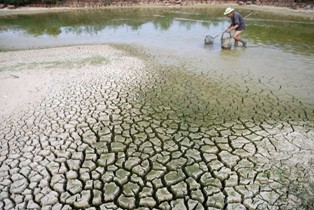In support of the vision of the Federal Government of Nigeria aimed at ensuring sustainable recovery, return of Internally Displaced People (IDPs) and stabilization of conflict-ravaged communities in the North-East, the United Nations Development Programme (UNDP) in Nigeria, with funding support from the Government of Japan, has commenced implementation of two new projects in Adamawa, Borno and Yobe States.
The two projects “Support to Early Recovery and Social Cohesion” and “De-radicalization, Counter-terrorism and Migration” will be contributing to the on-going recovery interventions in the North East – a region that has been devastated by insurgency.
Within the support of the Government of Japan of up to 42 million USD for UNDP Regional Bureau for Africa (RBA) which will facilitate the implementation of 16 projects at country level and 3 at regional level, 3 million USD has been allocated to projects in Nigeria that will be implemented over a 12 months’ period. The Ministry of Budget and National Planning will coordinate the implementation of the two Projects.
The Early Recovery and Social Cohesion Project, being implemented with the Governments of Adamawa, Borno and Yobe States, and the Nigerian Army Peacekeeping Centre (NAPKC), is geared towards ensuring recovery and return of victims of conflicts to sustainable development pathways.
The interventions are expected to focus on targeted support towards restoring and stabilizing disrupted livelihoods and ameliorate loss of income, enhancing their productive capacity, rebuilding of damaged communities’ infrastructure and creating short-term employment opportunities in the state.
The interventions would also strengthen capacity for dialogue, mediation and peace building, sensitize citizens to embrace core cultural and moral values, promote spirit of peaceful co-existence, and boost capacity of security personnel for civilian protection.
The De-Radicalization, Counter-Terrorism and Migration Project which is being implemented with Nigerian Institute for Advanced Legal Studies (NIALS), NAPKC and the Centre for Democracy and Development (CDD), will work closely with religious and traditional leaders, security agencies and the judiciary in ensuring effective prevention of violent extremism, radicalization and irregular migration.
The major areas of intervention include: strengthened knowledge of security agencies in the investigation and prosecution of terrorism and irregular migration; strengthened capacity of the judiciary in the prosecution and adjudication of terrorism-related cases; strengthened capacity of local religious and community leaders in prof-erring and propagating counter-radical narratives to extremists’ views and perspectives; and enhanced partnership between community leaders and security agencies in preventing causes of violent extremism.
Ms. Fatma Samoura, the UNDP Resident Representative, in acknowledging the support from the Government of Japan stated that UNDP will continue strengthening partnerships in its work on conflict prevention and peace building in order to promote social cohesion and empowering communities so that they become more inclusive and resilient to both external and internal shocks.
In highlighting the importance of the projects, H.E Sadanobu Kusaoke, the Japanese Ambassador to Nigeria stated that the government of Japan will continue to support Nigeria’s efforts aimed at restoring stability and livelihoods for the communities in the North East region.



